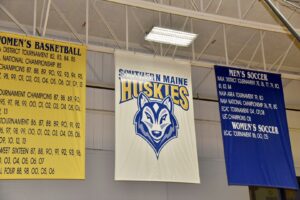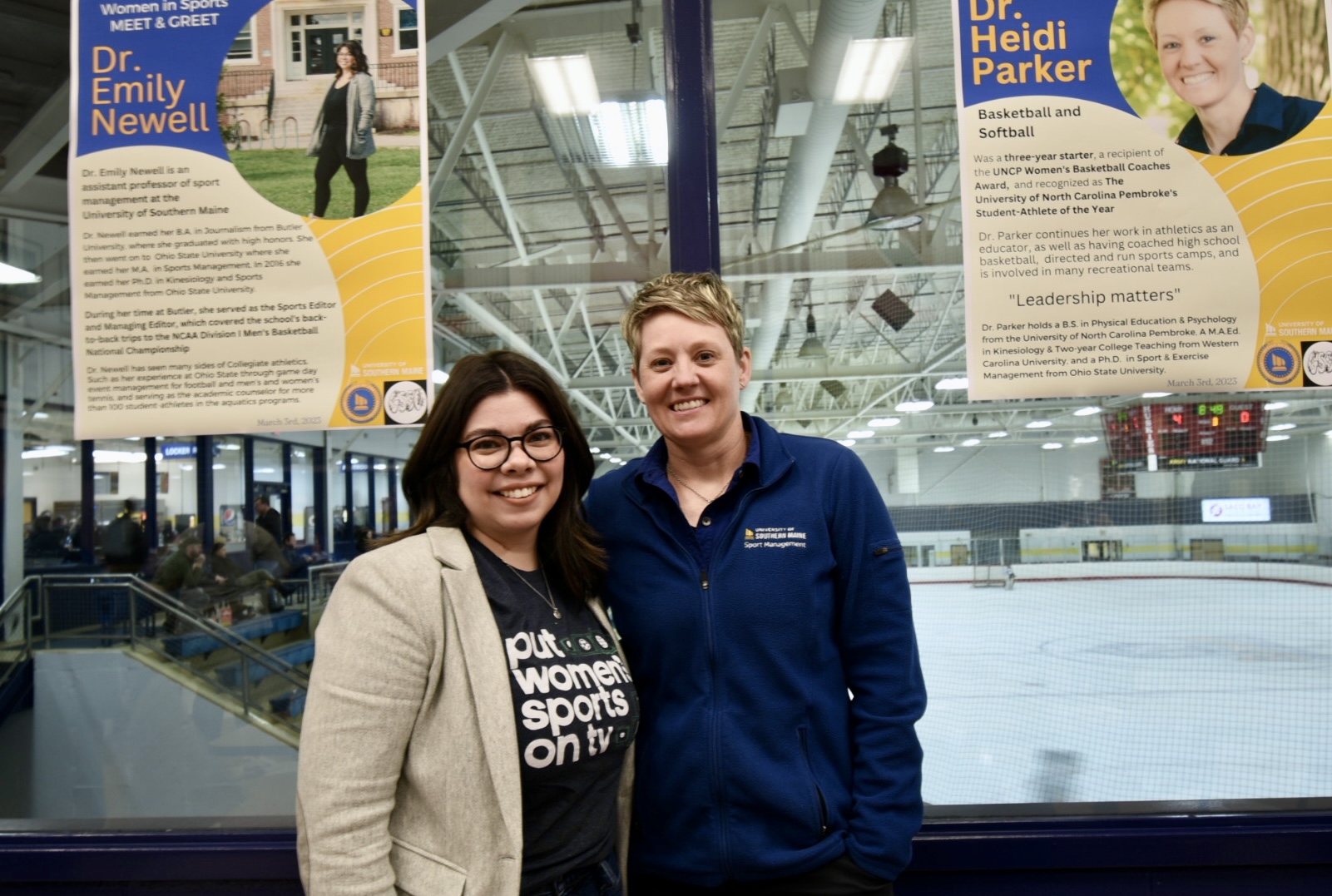With March being Women’s History Month, the Student Body President’s Office (SBPO) decided to host an event on March 3rd to celebrate women in sports. Justice Michaud, Vice President of the SBPO, says that she got the inspiration for the event from her mother Anais Aguirre, a USM alumnus who played on the softball team during her time here.\
Energetic pop music could be heard from the lobby of Costello, drawing the attention of many students as they stopped to watch the fun. The event started at 4 p.m. in the Costello Gym with members of the Student Government Association (SGA) participating in different activities, like cornhole, spike ball, and basketball. Michaud expressed that she wanted the event to be something fun and easy that everyone could enjoy, with a “pep rally style.”

All SGA members did an amazing job at making the event a welcoming and positive experience for everyone and taking the time to make sure everyone felt included. Inclusion was a major theme at the event, especially during the Meet and Greet panel with five women, including Aguirre, who participated in sports during their college careers. Food was provided for everyone as the participants in the panel discussion had a relaxed conversation about their experience growing up with sports. Title IX was frequently brought up during the discussion, as many women on the panel had mothers who grew up in an era before Title IX.
It’s important to mention that not all women on the panel chose to play on a sports team during college. For example, Dr. Emily Newell, an Assistant Professor of Sport Management here at USM, originally got her B.A. in journalism at Butler University, where she covered sports events and eventually became the Sports Editor and Managing Editor at her school’s newspaper. She had an intense passion for sports, but due to familial pressures and stereotypes around women and girls in sports, she found her way in through journalism. Dr. Newell eventually got her Ph.D. in Kinesiology and Sport Management from Ohio State University, becoming a wonderful representation of different paths available to women with a passion for sports.
Most discussion questions during the panel were focused on what influenced the women to participate in sports, what it was like growing up with Title IX, and important moments during their sports careers that they won’t forget. The group also discussed discrimination, and how they’ve been affected by it. Dr. Heidi Parker, Associate Professor of Sport Management and Director of the Center for Collaboration & Development at USM, told a story about her students, in which she recalled being told, “Wow, I didn’t realize a girl professor could teach me about sports.”
As Dr. Parker discussed how that interaction impacted her, she also shifted attention towards the terminology we use to talk about women’s sports. To Dr. Parker, it was very important to make sure grown women were being treated as such, making an effort to call it “Women’s” sports, rather than “Girls’.” She felt addressing adults as “girls” showed a lack of respect, and reinforced the image of a young, thin, pretty girl, when we need to more accurately describe who we’re talking about. She called for women to be more proud of themselves, and not to allow men to infantilize them any longer.
This turned the focus of the discussion to the differences in dress codes in men’s and women’s sports and the sexualization of women athletes. Dr. Newell brought up examples of bikinis and spandex shorts as the dress code for women’s volleyball, and how athletes are protesting against it. All the women on the panel seemed to agree that there is a large amount of sexualization in women’s sports, rather than appropriate recognition of their talent as athletes. One of the excuses given that was discussed was that the tight shorts provided aerodynamic advantages compared to baggier shorts. “If it were that big of an advantage, men would wear them,” one of the women on the panel said, which was met with loud agreement from the rest of the group so quickly that it was hard to pin down who originally made the comment.
As the event came to a close, anyone who wished to participate in games of volleyball and kickball were encouraged to stay. Leaving the event, the mission statement for the event came to mind: “SBPO wishes to educate our community about the problem of gender disparity in athletics. By having open dialogues, hosting a Women in Sports forum, and hosting athletic events, we seek to raise awareness of the lives and careers of these athletes.” The Women’s History Month Olympics successfully did just that, providing a safe environment for women to speak up about their experiences while sharing their love for sports with this generation of college students, whether they are athletes or not. It was clear that not everyone was there for the sports, but everyone was genuinely invested in the stories of women who pushed themselves to succeed in a field not built for them. The women involved shared their hopes for the future with those participating, who will carry those feelings beyond the event and into the rest of the world.

